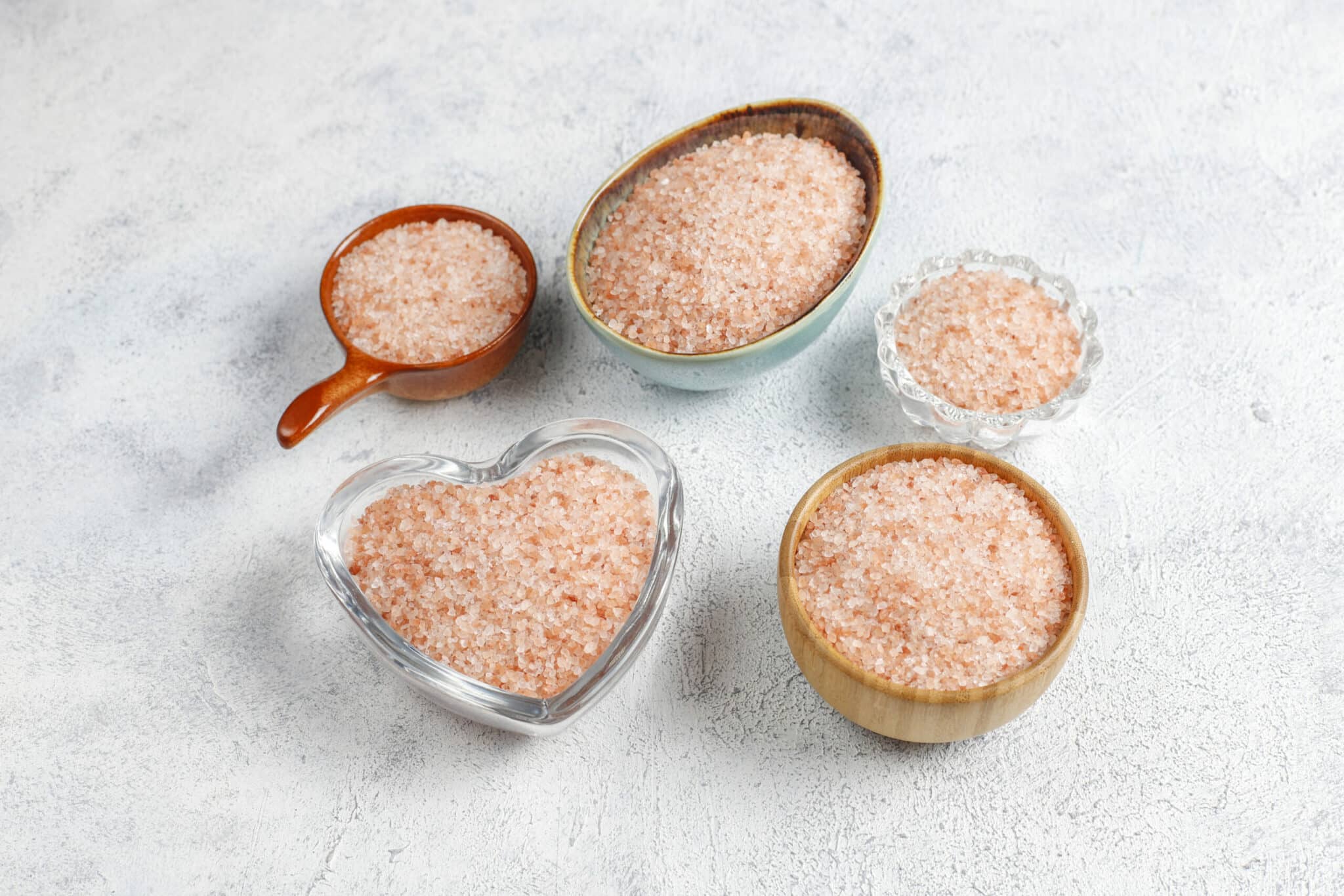One of the most prevalent spices globally is salt; the most common use for salt globally would be as a food preservative and flavoring ingredient – no surprise at all.
Notably, salt is the most prevalent seasoning and has preserved food for thousands of years. Moreover, this ingredient serves a variety of functions in our food, including giving flavor and texture and increasing color.
Even when used in moderation, excess salt consumption has been related to high blood pressure and other health problems. Many people with chronic health concerns must limit their salt intake, and the average American consumes far too much of it.
Instead, try a few of these salt substitutes without potassium chloride to give your favorite meal a flavor boost.
Salt Nutrition Facts
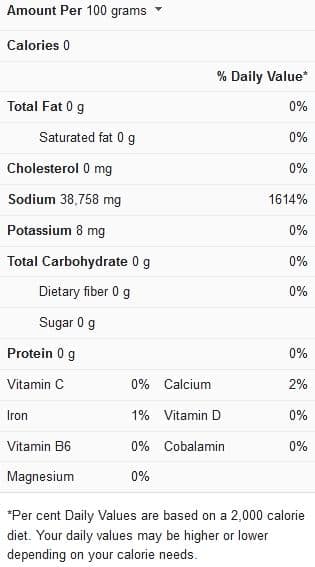
What is salt
Salt has preserved food and enhanced flavor for thousands of years. It’s also utilized as a color control agent, a binder, a texturizer, and a fermentation inhibitor.
The amount of salt we ingest from various foods varies depending on our eating patterns, but around 20% of the salt we consume comes from naturally salt-containing foods.
Salt improves meals by essentially amplifying the saltiness of their flavors. Salt can also reduce our perception of bitterness, reducing the bitterness of foods and balancing other flavors such as sweet and sour (salt added to desserts or vinaigrettes, for example).
According to the American Heart Association, most adults should consume no more than 2,300 milligrams of salt per day, and ideally, no more than 1,500 milligrams per day.
This recommendation, however, is still 1,000 mg below what most Americans take. According to the American Heart Association, the average American adult consumes more than 3,400 mg of sodium per day, leading to excessive blood pressure and heart disease.
To be clear, one teaspoon of table salt has 2,325 milligrams of sodium, putting you beyond the AHA’s recommended sodium consumption.
Salt uses in recipes
To enhance the flavor of food, salt is used as a condiment. It improves the taste of bland foods like carbs and helps to bring out the inherent flavors of other foods.
- Bread
- Pasta
- Salt & Vinegar Seasoning
- Eggplant
- Mango With Chile-Lime Salt
- Beef
- Potatoes
- Brining
- Fish
- Edamame
- Pork
- Seasoned Eggs
- Seasoning Mix
- Salt Baked Chicken
- Roasted Chickpeas
Salt substitutes without potassium chloride
If you are looking for a reliable salt substitute, it is probably because a nutritionist has told you that you need to reduce your sodium/potassium chloride intake.
In some circumstances, it may simply be that you have run out of salt at home, although what are the chances? In either case, there are some salt substitutes without potassium chloride that won’t sacrifice the flavor of your recipe.
Garlic
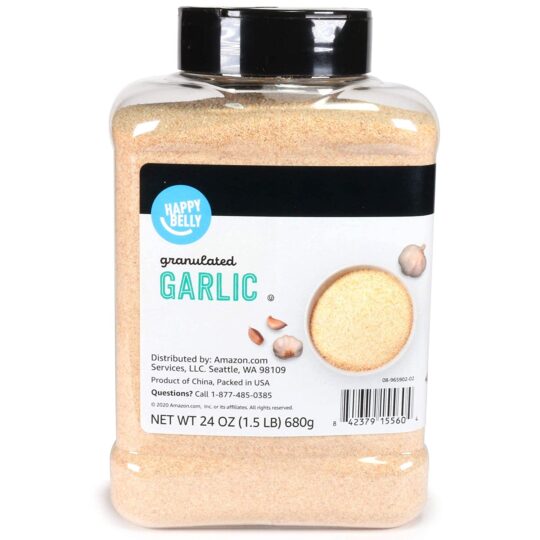
Garlic is a sour spice that adds taste without adding sodium or potassium chloride to a dish.
In tomato sauces and marinades, you can reduce the salt and increase the amount of garlic. Garlic also goes well in soups and stir-fries.
Furthermore, this allium veggie is chock-full of health advantages. Studies have shown Garlic components to increase immunity, decrease blood pressure, and promote brain function. However, garlic might induce allergic responses and raise the risk of bleeding in some people.
Onion powder
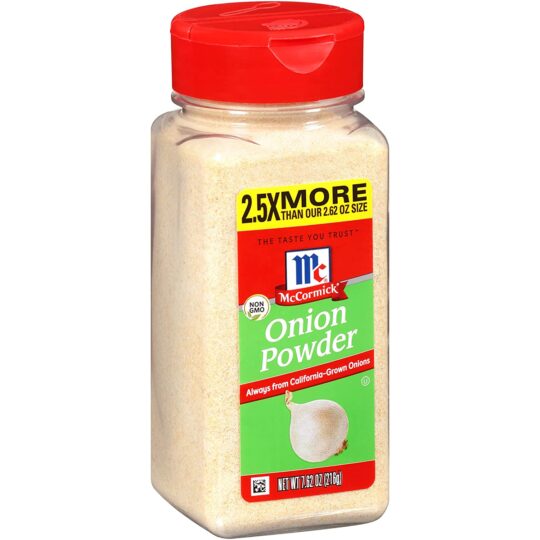
Onion, like garlic, adds a depth of flavor to practically any savory dish.
Dried onion or onion powder, in particular, is more potent than fresh onion and can be used in stir-fries, soups, stews, dips, and salsas in place of salt. It has a little sweetness and a hint of spice.
Onion powder is just dried onions that have been crushed/ground. Although onion powder comprises dehydrated onion skins and roots, dried onion is merely the onion flesh.
Onion powder adds a unique feature to the mix, making it quite useful in cooking. Moreover, you will find that it disperses evenly in the meal, giving it a rich onion flavor all over.
You can make creamy dips and salad dressings with onion powder; you can also season casseroles and vegetables or use them as a base for rubs and marinades.
Rosemary
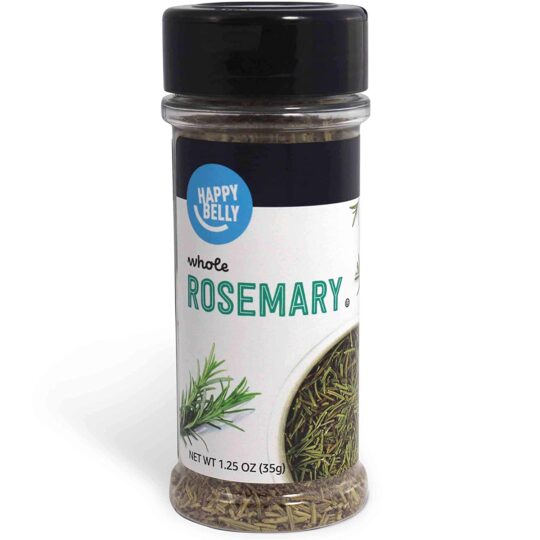
Rosemary is a well-known herb that is frequently used in dipping oils.
Fresh or dried rosemary can be used in soups, stews, roasts, roasted vegetables, dressings, sauces, and bread.
Rosemary (Rosmarinus officinalis) is a Mediterranean herb with a long history. The leaf and its oil are widely utilized in both cuisine and medicine. When applied to the scalp, rosemary appears to stimulate blood circulation, aiding hair follicle growth.
Rosemary is high in antioxidants and anti-inflammatory chemicals, which promote blood circulation and stimulate the immune system.
Notably, rosemary is a cognitive stimulant that can boost memory quality and performance and is also known to improve alertness, intelligence, and concentration.
Frequently asked questions (FAQs)
What is the greatest salt alternative for people who have cardiac problems?
Pure herbs and spices, such as garlic, onion, and chili powder, are also excellent choices (Hint: avoid picking up garlic salt or onion salt by accident). Spices should be purchased in limited quantities because their flavor fades after months.
What spice has the saltiest flavor?
You will want the ones that are the tastiest and have a wonderful, flavorful bite to them, like salt. Cumin, cayenne, paprika, black pepper, oregano, lemon peel, garlic, onion powder, and rubbed sage are among the best.
Is kelp a suitable salt substitute?
Brown seaweeds including kelp, Alaria, rockweed, and bladderwrack are recognized for contributing umami, a savory, slightly salty flavor similar to that found in cheese, fish sauce, and liquid amines. These seaweeds work well as salt alternatives in soups, stir-fries, and bouillon dishes.
Conclusion
As folks become more aware of the dangers of too much sodium, the food manufacturing business has responded by developing salt replacements.
Potassium chloride is frequently used to flavor food instead of sodium chloride; however, some persons must limit their potassium consumption because they are in danger of acquiring high potassium levels.
You can use any highlighted salt substitutes without potassium chloride; they are suitable substitutes.
